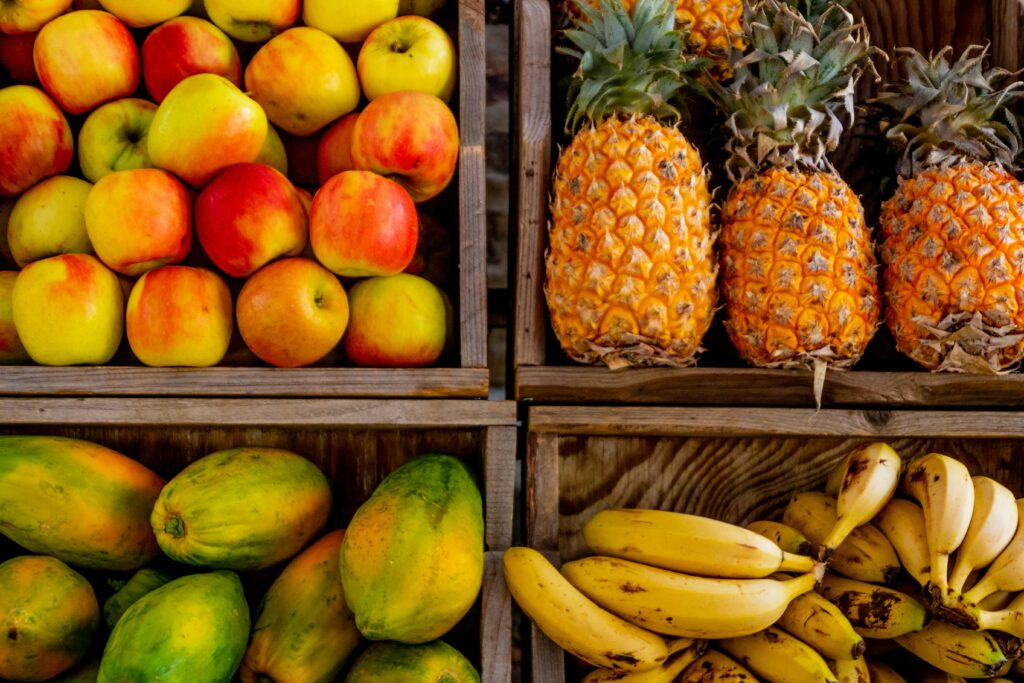
What are Vitamins and what do they do?
Vitamin deficiency is a big problem throughout the entire world. The World Health Organization(WHO) estimates that 2 billion people around the globe have a vitamin deficiency. Vitamin deficiencies can cause a plethora of problems like poor wound healing or weakening of bones and muscles leading to various diseases. Deficiency can be caused by genetics but is mainly dictated by your environment. People need vitamins to function properly. Each vitamin has a different role in the body to help maintain someone’s health and function. The are 13 known vitamins, with each serving a different role or function within the body
Fat and Water-Soluble Vitamins
There are two different types of vitamins- fat-soluble and water-soluble vitamins. Fat-soluble vitamins are ones that the body can save in the fatty tissue of the liver, while water-soluble vitamins exit the body by urination. Water-soluble vitamins need to be consumed more frequently, but this means you only need small amounts of them.
Water soluble vitamins:
- Vitamin C
- Vitamin B1( Thiamine)
- Vitamin B2(Riboflavin)
- Vitamin B3( Niacin)
- Vitamin B5(Pantothenic Acid)
- Vitamin B6(Pyridoxine)
- Vitamin B7(Biotin)
- Vitamin B9(Folate)
- Vitamin B12( Cobalamins)
Fat Soluble Vitamins:
- Vitamin A(Retinol)
- Vitamin D(Calciferol)
- Vitamin E(Tocopherol)
- Vitamin K(Phytonadione)
The Vitamins, their roles, and where to find them
Vitamin A: Supports eye health and function, promotes cell development, contributes to immune system health, and helps with white blood cell production. Found in carrots, broccoli, leafy greens, milk, tomatoes, mangoes, and other yellow fruits and veggies
Vitamin B1: Helps maintain a healthy metabolism, maintains proper nerve function, and helps with keeping the digestive system functioning. Found in peas, beans, potatoes, wheat, pork, and fish
Vitamin B2: Contributes to new cell growth, helps the body maintain energy by breaking down macromolecules, and contributes to healthy skin. Found in yogurt, milk, eggs, meat, and leafy greens
Vitamin B3: Has antioxidant properties to protect you. It also promotes healthy growth and metabolizes energy. Found in red meat, fish, nuts, legumes, and mushrooms
Vitamin B5: Helps the body metabolize the macromolecules – carbs, proteins, and fats. It also helps maintain blood sugar levels. Found in meat, eggs, broccoli, legumes, mushrooms, avocados, and yogurt.
Vitamin B6: Helps boost the immune system, plays a role in nerve functioning, and helps with red blood cell synthesis. Also helps with the metabolization process. Found in tofu, soybeans, poultry, fish, chicken, and other forms of meat
Vitamin B7: Helps with keeping a steady metabolism by metabolizing macromolecules. Also has been shown to strengthen hair and nails. Found in whole grains, nuts, milk, eggs, potatoes, avocados, and bananas
Vitamin B9: Important in red blood cell production. Helps with synthesizing amino acids and creating DNA. Is especially important for pregnant women, as it helps create red blood cells in the fetus. Found in citrus fruits, leafy greens, legumes, and whole grains
Vitamin B12: produces DNA, RNA, and red blood cells for the nerves. Important for brain development. Also has been linked to the prevention of heart disease. Found in meat, poultry, milk, eggs, and yogurt.
Vitamin C: Helps strengthen blood vessels, and supports the immune system by fighting off infections and colds. Also an antioxidant. Found in citrus fruits, broccoli, bell peppers, Brussels sprouts, and potatoes
Vitamin D: Important to building and strengthening your bones. Supports bone and teeth health. Can also help with reducing infections. Found in fish, cheese, eggs, chicken, and beef. The body can also create vitamin D by using sunlight. Most people tend to be deficient in vitamin D because they don’t get enough sunlight
Vitamin E: Is an important antioxidant, protecting your body from free radicals. Also helps maintain and protect red blood cells and fatty acids. Found in pumpkin, mango, guava, milk, nuts, seeds, and vegetable oils.
Vitamin K: helps the body with proper blood clotting. Also helps absorb calcium, helping build strength in the bones. Found in cabbage, leafy greens, beef, and nuts
To keep a balanced diet and maintain a healthy life, people should incorporate the foods listed to get all 13 vitamins. Individuals should also try to go outside more often to get more Vitamin D and physical activity. To live life to the fullest and reduce the risk of vitamin deficiency, people should strive to eat less junk food and more whole foods.
References
Vitamins: What are they, and what do they do? (medicalnewstoday.com)
The Scientific Name Of Vitamins- Sources and its Scientific Name (byjus.com)
Vitamins and Minerals | The Nutrition Source | Harvard T.H. Chan School of Public Health